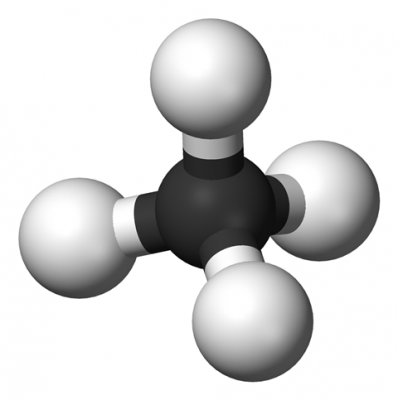WHAT IS METHANE?

Methane is a hydrocarbon, which means that it is a compound made up of hydrogen and carbon atoms. It naturally occurs as an odourless, colourless, and tasteless gas. It is 25 times more dangerous Greenhouse gas than carbon dioxide. It can either be introduced into the environment by natural processes like the decomposition of the organic matter or by human activities like coal oil and natural gas extractions from the Earth, uncovered or poorly managed landfills and the burning of fossil fuels to name a few.
PRIMARY SOURCES OF METHANE EMISSIONS
Atmospheric methane concentrations have grown as a result of human activities related to agriculture, including rice cultivation and ruminant livestock; coal mining; oil and gas production and distribution; biomass burning; and municipal waste landfilling. Emissions are projected to continue to increase by 2030 unless immediate action is taken.
In agriculture, rapid and large scale implementation of improved livestock feeding strategies can reduce of 20% of global methane emissions by 2030, while full implementation of intermittent aeration of continually flooded rice paddies (known as alternate wetting and drying cultivation) could reduce emission from rice production by over 30%.
Emissions from coal mining and the oil and gas sector could be reduced by over 65% by preventing gas leakage during transmission and distribution, recovering and using gas at the production stage, and by pre-mine degasification and recovery of methane during coal mining.
METHANE IMPACTS
- CLIMATE IMPACTS
Methane is generally considered second to carbon dioxide in its importance to climate change. The presence of methane in the atmosphere can also affect the abundance of other greenhouse gases, such as tropospheric ozone, water vapor and carbon dioxide.
Recent research suggests that the contribution of methane emissions to global warming is 25% higher than previous estimates.>
- HEALTH IMPACTS
Methane is a key precursor gas of the harmful air pollutant, tropospheric ozone. Globally, increased methane emissions are responsible for half of the observed rise in tropospheric ozone levels.
While methane does not cause direct harm to human health or crop production, ozone is responsible for about 1 million premature respiratory deaths globally. Methane is responsible for about half of these deaths.
SOLUTIONS
The relatively short atmospheric lifetime of methane, combined with its strong warming potential, means that targeted strategies to reduce emissions can provide climate and health benefits within a few decades.
The Coalition supports implementation of control measures that, if globally implemented by 2030, could reduce global methane emissions by as much as 40%. Several of these emission reductions could be achieved with net savings, providing quick benefits for the climate as well as public health and agricultural yields.
Credit : Climate & clean air coalition
Picture Credit : Google